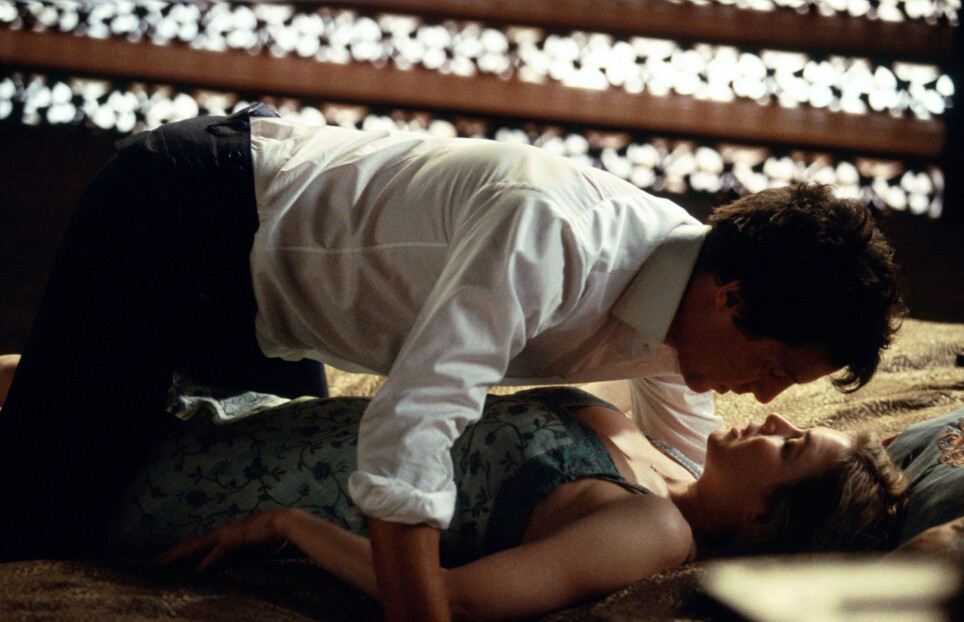THIS ARTICLE/PRESS RELEASE IS PAID FOR AND PRESENTED BY NTNU Norwegian University of Science and Technology - read more

People do not learn from regretting one night stands
Do you regret what you did the last time you had the option of a one night stand? You probably have not learned anything to help you next time.
A lot of people think regret must be a good thing because it helps you not repeat a mistake, right?
But that turns out not to be the case. Not even when it comes to casual sex, according to new research from NTNU’s Department of Psychology.
“For the most part, people continue with the same sexual behaviour and the same level of regret,” says Professor Leif Edward Ottesen Kennair.
So, we repeat what we thought was a mistake, and we regret it just as much the next time around.
Professor Kennair and colleagues professor Mons Bendixen and postdoctoral fellow Trond Viggo Grøntvedt have investigated whether sexual regret is functional, that is, whether it contributes to any change in behaviour.
The participants in the study answered a questionnaire about sexual regret two times, at approximately 4.5 month intervals. This approach makes it possible to study changes over shorter periods of time.

Women and men have different regrets
Both women and men might regret what they did the last time an opportunity for casual sex arose. But they often regret completely different choices.
Women tend to regret having had casual sex more than men. Men, on the other hand, regret not taking advantage of a casual sex opportunity markedly more than women.
“We wanted to examine if their level of regret contributed to a change in behaviour the next time around,” says Bendixen.
“A lot of emotions are functional, like disgust that protects against infection and fear that protects against danger. An evolutionary approach has helped us understand anxiety by understanding the function of fear: fight-flight-freeze is about avoiding danger and defending ourselves against it,” says Kennair.

Many people assume that emotions have a function
Many psychologists assume that regret and other emotions have a function: that they’ll influence our behaviour so that we modify it. For example, after experiencing negative emotions, we will change our behaviour to reduce the risk of having those negative feelings later.
“Researchers have found that most people believe this is true for regret. They assume that regret is actually a helpful negative feeling. People assume it guides them not to repeat what they regretted,” says Grøntvedt.
If regret works that way, then wouldn’t men more often have casual sex the next time the opportunity arose? And, you would think that women’s regret would lead them to choose better partners, have less frequent casual sex or try harder to get into steady relationships.
But no that’s not what happens. The findings from the study show that we don’t learn from what we perceived as a mistake.

Not surprised
So why is that? Why don’t we learn from our mistakes? Probably because our behaviour depends on our personality, which is something quite different and more complicated than a shorter or more prolonged feeling of regret.
We are mostly just who we are, and when the opportunity arises and horniness take over, or doesn’t, we probably react just like the time before.
“We are not that surprised,” Kennair says. “If regret helped, would not most sinners eventually become saints? What do you regret the most often? Has it changed your behaviour?” he asks.
Regret is flexible, not constant. Or, as psychologists say, regret is adaptive. It changes according to the conditions.
“We have repeated that regret is adaptive in all our articles on the subject in recent years. And now we have tested it,” says Kennair.
No one else has tested regret for sexual behaviour. Perhaps researchers have assumed that they knew enough? Even outstanding people in the field have assumed that regret would help us learn.
“We found little information on this topic. But both most researchers and people in general believe that regret is wise,” says Grøntvedt.
Do you really need to spend so much time being regretful?
“Maybe it would be smart instead to think about what we regret in everyday life, and what we actually do so often that we get ample opportunity to regret it,” Kennair says.
Have you exercised enough lately? Did you eat too much? Done everything you should? Said something you shouldn’t have said? Does it help to regret things sometimes? No? This is a bit like ruminating, which a lot of people with depression assume is a smart thing to do, even if they become more depressed from doing it.
“And yet, there are some folks who think that depressive ruminating and worry are a good idea. But the way we treat depression and generalized anxiety disorders is by helping people to stop ruminating and to stop worrying. Not everything people do, think or feel is an evolutionary adaptation – sometimes it is not appropriate either,” Kennair says.
Reference:
Leif Edward Ottesen Kennair et.al.: The Function of Casual Sex Action and Inaction Regret: A Longitudinal Investigation, Evolutionary Psychology, 2021.
———
Read the Norwegian version of this article at forskning.no
See more content from NTNU:
-
Why is nothing being done about the destruction of nature?“We hand over the data, but then it stops there"
-
Researchers now know more about why quick clay is so unstable
-
Many mothers do not show up for postnatal check-ups
-
This woman's grave from the Viking Age excites archaeologists
-
The EU recommended a new method for making smoked salmon. But what did Norwegians think about this?
-
Ragnhild is the first to receive new cancer treatment: "I hope I can live a little longer"





































